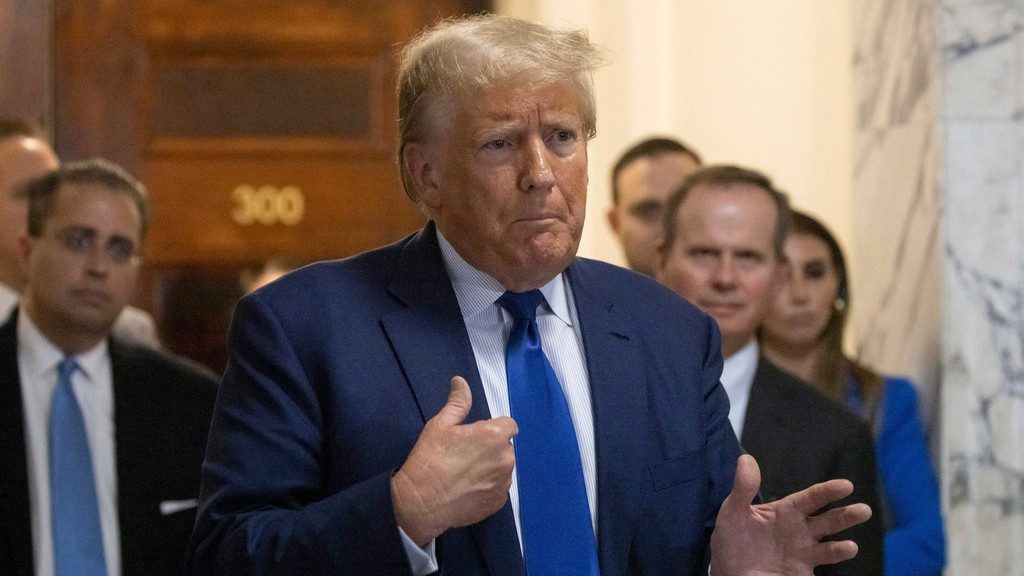A New York judge on Friday denied former President Donald Trump's request for a mistrial in the civil business fraud case against him, calling the arguments for such a motion "utterly without merit."
In a filing earlier this week, Trump's attorneys argued that the judge overseeing the trial, New York State Supreme Court Judge Arthur Engoron, is biased against the former president. They cited his rulings against their client, the prominent role of the judge’s chief law clerk, the clerk's political donations and the judge's sharing of articles about the case with fellow alumni of his high school.
“"The evidence of apparent and actual bias is tangible and overwhelming," the filing from Trump's attorneys reads. "Such evidence, coupled with an unprecedented departure from standard judicial procedure, has tainted these proceedings and a mistrial is warranted."
In Wednesday's filing, defense attorneys accused Engoron and his principal law clerk of engaging in conduct that has "tainted these proceedings."
"Only the grant of a mistrial can salvage what is left of the rule of law," the filing reads.
The judge rejected all claims of bias, writing in his order: "My principal law clerk does not make rulings or issue orders — I do."
“My rulings are mine, and mine alone," he wrote. "There is absolutely no ‘co-judging’ at play."
As for publishing a high school newsletter in which he has included links to articles about himself and the case, “none of this has anything to do with, much less does it interfere with, my presiding fairly, impartially, and professionally over the instant dispute, which I have now been doing for more than three years, and which I intend to do until its conclusion,” he wrote.
Trump attorney Alina Habba released a statement saying: “As expected, today the Court refused to take responsibility for its failure to preside over this case in an impartial and unbiased manner. We, however, remain undeterred and will continue to fight for our clients’ right to a fair trial.”
The $250 million civil fraud case could have major implications for the former president's real estate empire and personal wealth. The case, brought by New York Attorney General Letitia James, accuses Trump, his adult sons Donald Trump Jr. and Eric Trump, and other top Trump Organization executives of exaggerating his wealth by billions of dollars on the financial statements by inflating property values.
The documents were given to banks, insurers and others to secure loans and make deals. James is seeking millions in what she says were ill-gotten gains, and she wants the defendants banned from doing business in New York.
Before the trial, Engoron ruled that Trump and other defendants committed fraud by exaggerating his net worth and the value of assets on his financial statements. The judge imposed a punishment that could strip Trump of some marquee properties, though an appeals court is keeping them in his control for now.
Trump and the other defendants deny any wrongdoing.
Last week, Engoron spurned the defense’s request to end the trial through what’s known as a directed verdict.
Trump, the front-runner for the 2024 Republican presidential nomination, has long complained about James, Engoron and the judge's principal law clerk, Allison Greenfield. All are Democrats.
Engoron imposed a gag order on Trump after the former president repeatedly attacked his law clerk in posts online and outside the court room. Trump has already been fined twice for violating that order, resulting in $15,000 worth of fines.
It’s a bench trial, meaning Engoron will decide the verdict.



